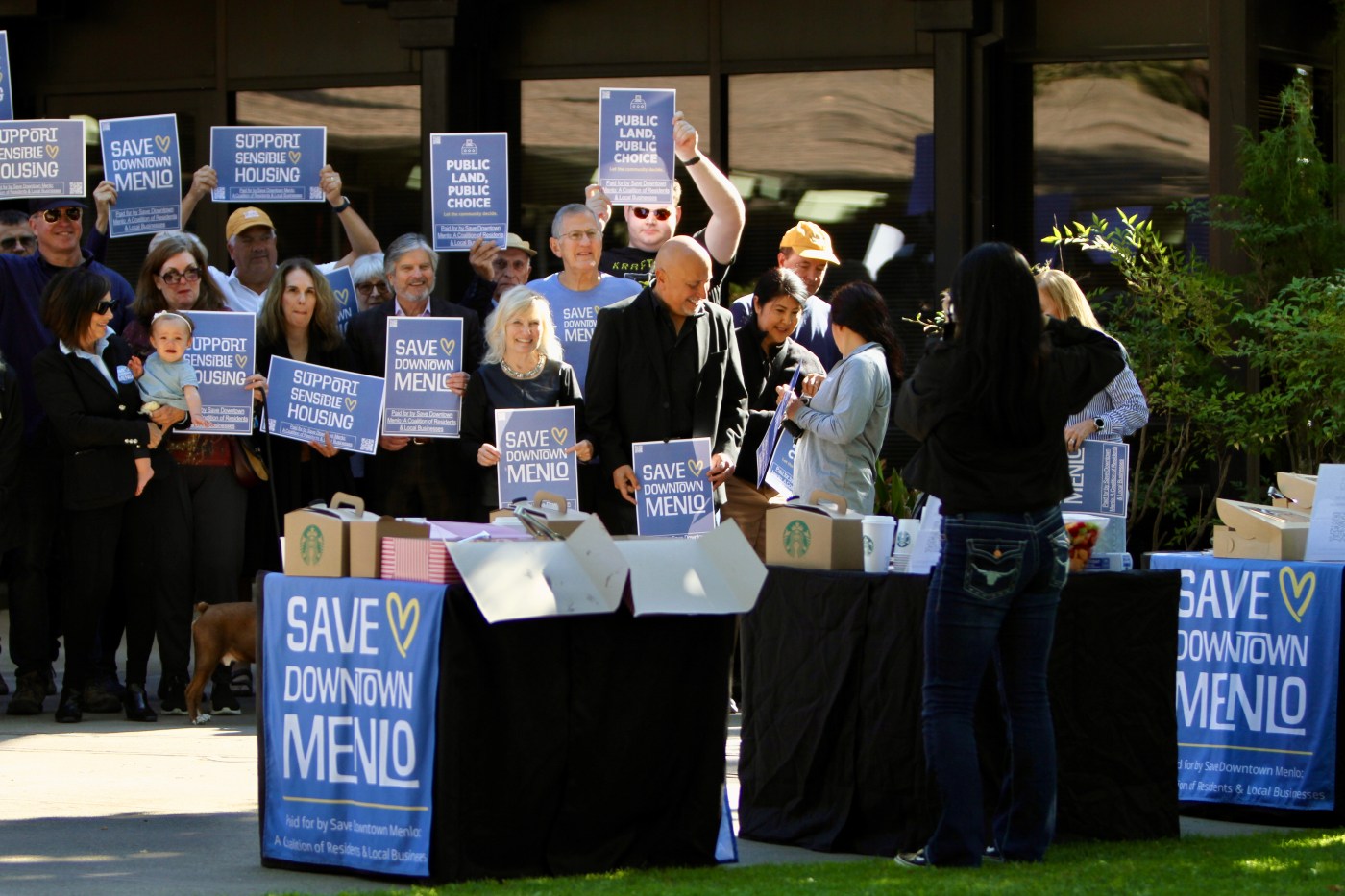
Opponents of a plan to convert downtown parking lots into affordable housing say they’ve collected enough signatures to put the issue before voters, potentially halting an effort to build 345 affordable units on lots that currently provide more than 500 parking spaces.
Save Downtown Menlo Park, a coalition of local businesses and downtown patrons, submitted 3,440 signatures to City Hall last Friday — well above the 10% threshold of registered voters needed to qualify the measure for the ballot.
The proposed initiative would bar the city from selling, leasing or giving away its eight downtown parking lots without voter approval. It specifically targets actions that would reduce or limit public parking for downtown customers, workers or visitors, and would require a majority vote of the city’s residents to make any such changes.
Related Articles
State audit calls out UC, CSU student housing and says $89 million should not be used for SJSU’s Spartan Village
Amid soaring evictions, Bay Area city gets a state housing grant and a designation that could lead to new solutions
Retirement in the Bay Area: Poll finds many seniors face bare-bones budgets, mounting debts
Governor Newsom signs bill to spur housing near public transit
Why this wealthy South Bay suburb is at the center of the next big fight over California housing
In 2023, Menlo Park began exploring the idea of building housing on city-owned downtown parking lots to help meet its state-mandated housing targets.
The city developed a plan that focuses on three of its lots. It calls for the replacement of 556 public parking spaces with at least 345 affordable housing units. Six developers have been invited to submit proposals by Dec. 15.
Opponents of the project argue that reducing the amount of available parking could harm longtime downtown businesses and limit accessibility, while housing advocates say it is essential to addressing the region’s growing needs.
The city confirmed on Wednesday it had received the petition and forwarded it to the San Mateo County Elections Office for verification, a process that could take up to 30 business days. Once the county verifies the signatures, the City Council would formally confirm that the petition meets all legal requirements, making it valid to move forward, said Assistant City Manager Stephen Stolte.
After certification, the council must schedule the proposed ordinance for a future agenda and decide whether to adopt it outright or send it to voters, either in a special election or the November 2026 general election.
“We are encouraged by the number of Menlo Park residents who eagerly signed our petition,” said initiative proponent Van Kouzoujian. “This initiative simply says that all Menlo Park residents deserve to have their voices heard on a decision that will reshape our town forever.”
The petition marks the latest development in a months-long debate over the redevelopment of downtown Menlo Park. The group previously sued the city in April, arguing that the parking lots are public assets that cannot be used for private development without voter consent — a claim the city has said it disagrees with.
That lawsuit has since been paused by mutual agreement.
“We’ve paused our lawsuit because the City has clarified that it hasn’t taken a final action on the parking lots,” Save Downtown Menlo Park said in a statement on their website. “Nothing was decided on the merits, and we retain the full right to refile if it becomes necessary.”
The group added that pausing the lawsuit has no impact on the ballot initiative.
While Save Downtown Menlo Park opposes the project, the group says it is not anti-housing. It argues that removing easily accessible parking could drive away longtime downtown patrons and that new housing would be better suited for the nearby Civic Center.
“Adopting the ordinance outright would immediately empower residents so we can resolve this issue and move on to sensible housing that the whole community wants,” organizer Alex Beltramo told this news organization Wednesday. He added that the group hopes to redirect city efforts toward “better locations for affordable housing.”
Supporters of the downtown redevelopment say Menlo Park cannot afford further delays amid a worsening housing crisis and argue that new residents would boost local businesses by increasing foot traffic and expanding their customer base.
Menlo Park’s state-mandated housing plan calls for nearly 3,000 new homes by 2031, including more than 1,600 affordable units for moderate- and low-income households. In San Mateo County, individuals earning below $109,700 are considered low-income.